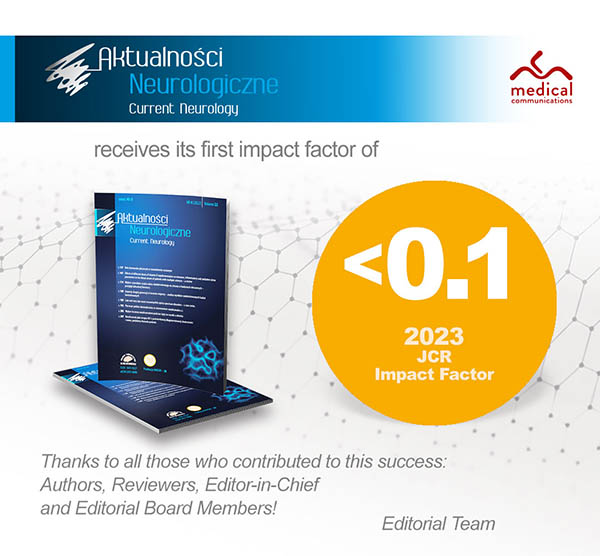Statistical, pathophysiological and clinical aspects of the relationship between multiple sclerosis and osteoporosis
Tomasz Grzegorski1, Jacek Losy2,3
 Affiliation and address for correspondence
Affiliation and address for correspondenceRecently there has been a large increase in a number of publications regarding bone health in multiple sclerosis as well as studies exploring the possible role of vitamin D in the aetiology of the condition. However, the relationship between multiple sclerosis and osteoporosis remains not widely discussed among clinicians. The aim of our review article is to present crucial aspects of such relationship as well as therapeutic options. There are many statistical facts suggesting that correlation between two said diseases occurs. The prevalence of osteoporosis clinical features, like pathological fractures, decreased bone mineral density or low vitamin D serum level, is greater in patients with multiple sclerosis. These facts can be explained by a wide variety of areas and pathways which are common for multiple sclerosis and osteoporosis. The functions of different mediators involved in the pathophysiology of diseases, the role of vitamin D and the adverse effects of drugs administered in multiple sclerosis serve as the best examples. Unfortunately, no uniform guidelines on the management of multiple sclerosis patients with osteoporosis have been established so far. However, the guidelines of the United Kingdom National Institute for Health and Care Excellence and National Osteoporosis Society are recommended in such cases. The most important are an appropriate vitamin D and calcium supplementation, smoking cessation, alcohol intake reduction and more of physical activity. There is a strong need to spread this knowledge among clinicians. A better understanding of the topic might result in the creation of diagnostic and therapeutic guidelines with this respect.








